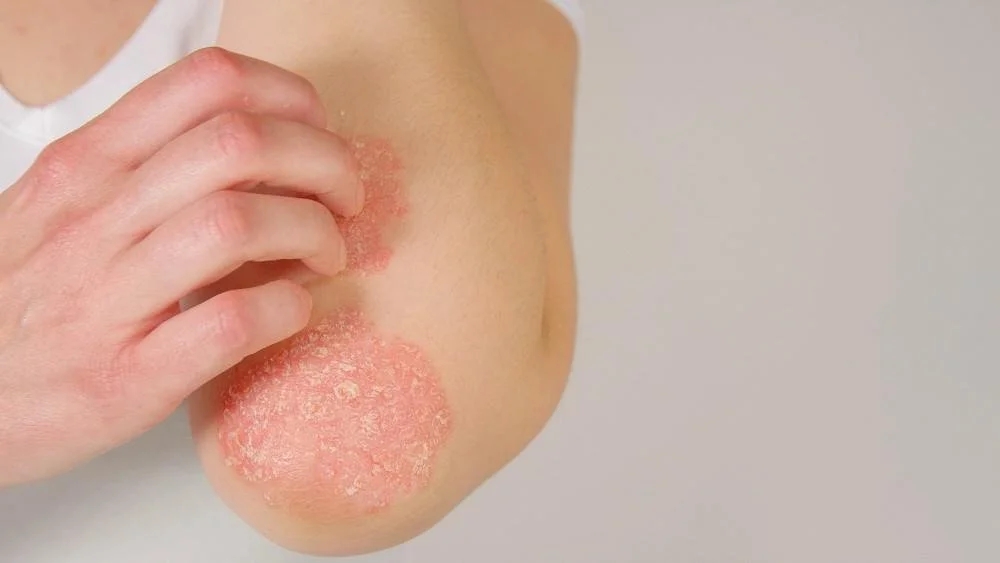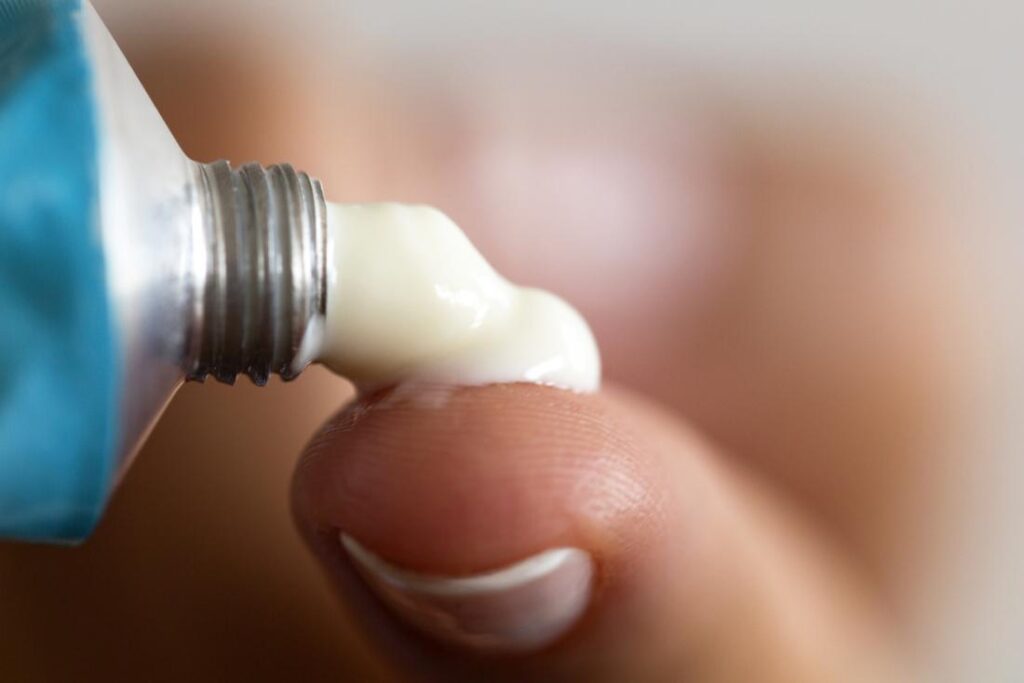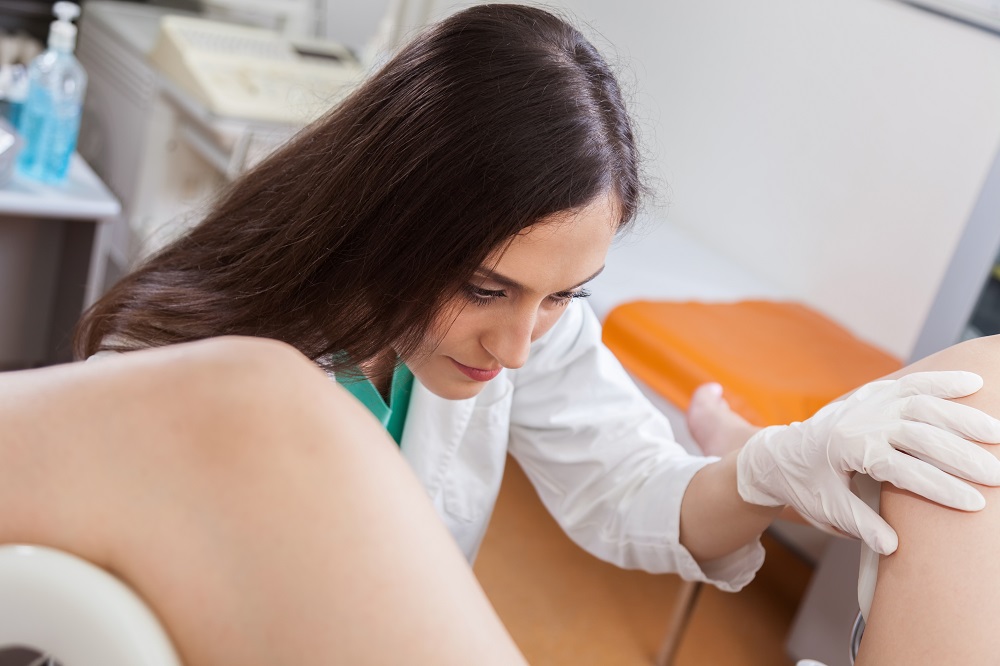Lichen sclerosus is a long-term skin condition that most commonly affects the vulva, though it can appear on other parts of the body too. It causes the skin to become thin, white, and sometimes shiny, often leading to itching, discomfort, or pain during urination or sex. While it can affect anyone, it is more common in women, especially after menopause, when hormonal changes can make the skin more sensitive.
Many people mistake lichen sclerosus for eczema or a yeast infection because the early symptoms can look and feel similar, such as dryness, irritation, and soreness. However, unlike eczema, lichen sclerosus can cause scarring and changes in the vulvar structure over time if not properly treated. The exact cause is not fully understood, but doctors believe it may be linked to autoimmune reactions or hormonal imbalances.
In this blog, we’ll explore how these two conditions differ, what symptoms to look out for, and when it’s time to see a doctor.
Understanding Lichen Sclerosus
Lichen sclerosus is a chronic skin condition that causes thinning, whitening, and irritation of the skin, most often around the vulva. It can also appear on other parts of the body, such as the upper thighs or around the anus, but it is most common in the genital area. The condition can cause symptoms like intense itching, burning, pain during urination or sex, and sometimes tearing or bleeding of the skin.

Although lichen sclerosus can affect anyone, it is more frequently seen in women after menopause. Hormonal changes, immune system issues, or a family history of autoimmune conditions are believed to play a role in its development. However, the exact cause is still not fully known.
Recommended: Lifestyle Adjustments for Managing Lichen Sclerosus Symptoms
One of the biggest challenges with lichen sclerosus is that it can easily be mistaken for other skin problems, such as eczema or yeast infections. Because of this, many women struggle with ongoing discomfort before getting the right diagnosis. Early medical attention is key, as untreated lichen sclerosus can lead to scarring or changes in the shape of the vulva.
With proper treatment and care, most people can manage the condition and prevent further complications. Topical steroid creams are commonly prescribed to reduce inflammation and relieve symptoms, and regular follow-up with a doctor helps ensure that the skin stays healthy over time.
What Is Vulvar Eczema?
Vulvar eczema, also known as vulvar dermatitis, is a common skin condition that affects the delicate skin around the vulva. It happens when the skin becomes irritated or inflamed, leading to symptoms like itching, redness, dryness, burning, or a raw feeling in the affected area. Unlike infections, vulvar eczema is not caused by bacteria or yeast but by an overreaction of the skin to certain irritants or allergens.
Everyday things can trigger vulvar eczema, such as scented soaps, detergents, sanitary pads, tight clothing, or even excessive washing. For some women, stress or hormonal changes can also make symptoms worse. The condition can come and go, flaring up when the skin is exposed to a trigger and calming down once that trigger is removed.
Vulvar eczema can sometimes look similar to other conditions, including lichen sclerosus or yeast infections, which is why an accurate diagnosis is so important. A doctor may examine the area, ask about your hygiene habits or product use, and sometimes perform a patch test to identify allergens.
Recommended: Why Does My Vulva Itch Even After Treating a Yeast Infection?
Treatment often focuses on calming inflammation and protecting the skin. This includes using gentle, fragrance-free cleansers, moisturizing regularly, avoiding irritants, and applying mild topical steroids or ointments if prescribed. With the right care, vulvar eczema can be well managed, allowing the skin to heal and stay comfortable.
Key Differences Between Lichen Sclerosus and Vulvar Eczema
It can be difficult to tell lichen sclerosus and vulvar eczema apart since both affect the same sensitive area and share similar symptoms like itching and irritation. However, understanding their differences can help you recognize which one you might be dealing with and seek the right treatment.
- Lichen sclerosus is believed to be an autoimmune condition, while vulvar eczema is caused by skin irritation or allergic reactions to external triggers such as soaps, detergents, or fabrics.
- Lichen sclerosus usually appears as white, thin, shiny patches on the skin, whereas vulvar eczema tends to look red, dry, or scaly.

- Lichen sclerosus mainly affects the vulva and sometimes the area around the anus, while vulvar eczema can affect the vulva, groin folds, or nearby skin exposed to irritants.
- The skin in lichen sclerosus becomes thin, fragile, and may scar over time. In vulvar eczema, the skin is often rough, dry, and inflamed but does not usually scar.
- Both conditions cause itching and discomfort, but lichen sclerosus can also cause pain during urination or sex due to skin thinning and scarring, which is less common in eczema.
- Lichen sclerosus has no clear external trigger and develops due to immune or hormonal factors. Vulvar eczema is usually triggered by contact with irritants, allergies, or moisture.
Recommended: How to Find a Specialist for a Rare Genital Pain Disorder
- Lichen sclerosus is a long-term condition that requires ongoing treatment, while vulvar eczema can come and go depending on exposure to irritants and proper skin care.
- If left untreated, lichen sclerosus can cause scarring, skin tightening, or structural changes to the vulva. Vulvar eczema rarely causes scarring and usually improves once the skin barrier is healed.
- Lichen sclerosus is treated with strong topical steroid creams and regular medical monitoring. Vulvar eczema is managed by avoiding triggers, moisturizing, and sometimes using mild steroid creams.
Overlapping Symptoms That Can Cause Confusion
Lichen sclerosus and vulvar eczema often share many of the same symptoms, which makes it easy to confuse one for the other. Both conditions affect the sensitive skin of the vulva and can cause itching, irritation, and discomfort that interfere with daily life. Because of these similarities, many people mistake them for common infections or simple skin irritation, delaying proper diagnosis and treatment.
- Persistent itching, especially at night or after contact with irritating products.
- Redness and inflammation around the vulvar area.
- Dryness and flaking of the skin.
- Burning or stinging sensation during urination or after scratching.
- Cracked or peeling skin that may become sore or bleed slightly.
- A feeling of tightness or sensitivity in the vulvar area.
- Discomfort during everyday activities such as walking, sitting, or sexual intercourse.
- Misdiagnosis as a yeast infection due to similar symptoms.
Treatment Options for Each Condition
Although lichen sclerosus and vulvar eczema can feel similar, their treatments are quite different because the causes of each condition are not the same. Getting the right diagnosis is very important before starting any treatment, as using the wrong products or creams can make symptoms worse instead of better.
For Lichen Sclerosus:
- Topical steroid creams or ointments are the main treatment. They help reduce inflammation, itching, and prevent scarring.
- Regular medical follow-ups are important to monitor progress and adjust treatment as needed.
- Moisturizing the area with gentle, fragrance-free emollients helps protect and soothe the skin.
- Avoiding irritants such as scented soaps, pads, or tight clothing helps reduce flare-ups.
- In some cases, hormone creams may be prescribed, especially if the condition is linked to hormonal changes after menopause.
Recommended: Is Burning During Penetration a Sign of Vaginismus?

For Vulvar Eczema:
- Identifying and avoiding triggers is key. This may include changing soaps, detergents, or sanitary products.
- Using mild, fragrance-free moisturizers to keep the skin hydrated and prevent dryness.
- Applying mild steroid creams or ointments as prescribed to reduce itching and inflammation.
- Wearing loose, breathable cotton underwear to minimize friction and irritation.
- Managing stress and maintaining good hygiene can help prevent flare-ups, as stress and sweat may worsen eczema.
With the right care and consistency, both conditions can be well managed. However, because lichen sclerosus can lead to scarring or long-term changes, it requires more regular medical supervision compared to vulvar eczema.
Conclusion
Both lichen sclerosus and vulvar eczema can cause significant discomfort, but understanding their differences is the key to managing them effectively. While they share similar symptoms like itching and irritation, their causes and treatments are very different. Lichen sclerosus is a chronic condition that often requires long-term medical care, while vulvar eczema is usually triggered by external irritants and can improve with proper skincare and avoidance of triggers.
Paying close attention to your symptoms and seeking medical advice early can prevent complications and ensure you receive the right treatment. No matter which condition you may have, remember that relief is possible with the right care, patience, and consistent management.
